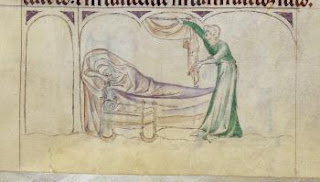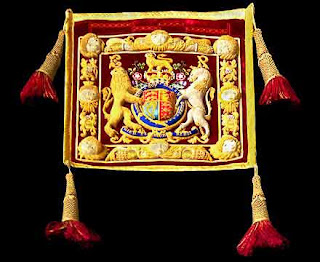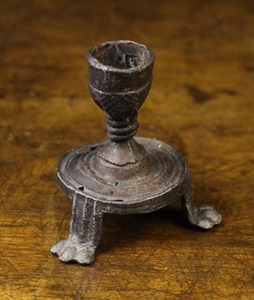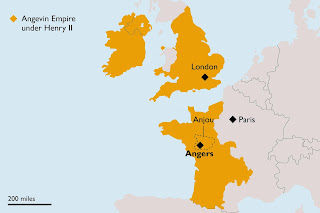The Norman practice of not only naming but formally elevating your heir led to Henry's eldest son, Henry, was formally made "king" and known as Henry, the Young King. At 18, Henry was well-liked and admired, but he had a problem: he was living like a king, with a retinue of knights and followers who wanted to be with the next monarch, but he had no revenues. Revenues come from the taxes on property, and his father kept tight control of England, Normandy, and Anjou. His mother, Eleanor, held the enormous Aquitaine. Young Henry stood to inherit a vast area, but he wanted it sooner. Then his father gave three castles, that would have belonged to young Henry, to Prince John. Eleanor and others urged Henry to rebel
His solution was ironic: give his future kingdom away in order to rule it. He promised territories to several counts of areas on the continent if they would support him in overthrowing his father. Henry senior's reputation had been severely tarnished by the killing of Thomas Becket in 1170; in 1173, people were still outraged.
Young Henry went to the court of King Louis VII of France, whose daughter he had married, to plan. His brothers Richard (Lionheart) and Geoffrey joined him (likely also upset at the preference shown to the youngest brother John). The first step was in March of 1173 when young Henry and his allies attacked Normandy from three sides. It was a failure. Loyal Norman forces repelled them and killed the Count of Boulogne.
The next phase took place when the Earl of Leicester took an army of Flemish mercenaries to England ... and was soundly defeated. Danger from the north was next: forces from Scotland in the spring of 1174 invaded northern England.
Then something happened that would not initially seem to be related to the war, but may have had an effect. Henry II, crossing from Normandy back to England in July, stopped at Canterbury Cathedral and did penance before the tomb of Thomas Becket, whose murder people felt as Henry's fault. The very next day, loyalists in northern England captured the Scottish forces. That was the end of the revolt. Henry II destroyed the castles of several of the nobles who supported his son. Young Henry, Richard, and Geoffrey all re-pledged their loyalty to the father.
Besides Prince John, there was another son who did not have cause to join the rebellion. This was another Geoffrey, who was illegitimate and possibly older than the rest. This Geoffrey had different ambitions, which were to be realized if he just kept his place and stayed the course. Tomorrow we'll talk about just how far a bastard son o a king could go.





























